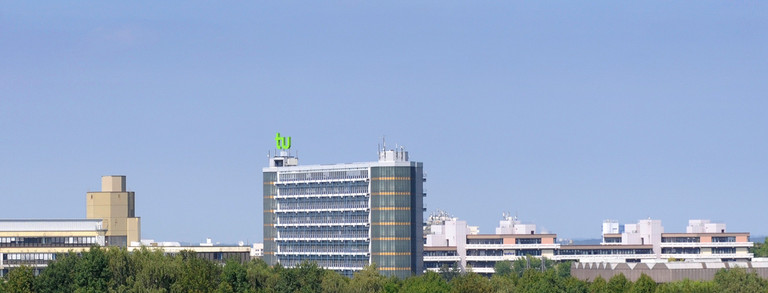Approximately 30,000 Students at TU Dortmund University
- Top News
- Studying & Teaching at TU Dortmund University

Among international students, the university has a total of 5,800 enrollments this winter semester, 453 more than the previous year. This reflects a growth of 1.8 percentage points compared to the previous year, with the current percentage of international students at 19.5 percent. Among first-year students, their share is around 28 percent. In master’s degree programs excluding teaching degrees, 38 percent of students already have an international background.
The demand from international students has steadily increased in recent years. TU Dortmund University currently offers 15 English-language Master’s degree programs, making the campus even more attractive to international students. Newly introduced this winter semester is the master’s degree program “Mechanics of Sustainable Materials and Structures (M2S2),” offered by the Department of Architecture and Civil Engineering at TU Dortmund University in collaboration with partner universities in France and Italy, and it started with 11 students. The master’s degree program “Sustainable Energy Systems,” which began at the Department of Electrical Engineering and Information Technology last winter semester, now has 48 enrollments, 41 of which are new this semester.
Business Informatics and Sociology successfully launched
The new Bachelor’s degree program “Business Informatics” at the Departments of Computer Science as well as Business and Economics also started very successfully with 192 students. This has increased new enrollments in computer science programs by 15 percent to over 600 in total. The bachelor’s degree program “Sociology,” which started three years ago at the Department of Social Sciences, has grown by 27 percent this semester to over 500 students, half of whom are newly enrolled.
The slight decline in student numbers in most courses at TU Dortmund University is a trend observed throughout North Rhine-Westphalia. This is partly due to demographic changes, as the so-called low birth rate cohorts are now graduating from high school. At TU Dortmund University, this decline affects courses in Natural and Engineering Sciences as well as Humanities and Social Sciences. Demand for teaching degrees has also decreased: the 16 percent drop in new student enrollments affects teaching degrees for all types of schools except for high schools, with business college teaching degrees being particularly affected.
Remaining attractive as a study location
Projections of student numbers suggest a further decline in the coming years. “In light of these developments, it is existentially important for us as a university to remain attractive to students and especially to new students,” emphasizes TU President Prof. Manfred Bayer. “We achieve this by continuously expanding our range of courses – including those taught in English – and adapting to changing societal and labor market requirements. We also need to keep the Dortmund location attractive. Furthermore, we must support students until successful graduation and assist them along the way.”
To increase student success, TU Dortmund University has already established numerous measures. Currently, it is testing an “accompanying zero semester” with partners, where new students can close knowledge gaps from school during their studies. The project, named “beVinuS.NRW,” has successfully started this semester for courses in the Departments of Physics as well as Electrical Engineering and Information Technology. In teaching degree programs, senior students actively support first-year students at the beginning of their studies through “Peer Mentoring”. The “ Ruhr Teaching Degree Scholarship Program” supports participants during their studies and specifically prepares them for later work in schools in challenging locations.





![[Translate to English:] Partner Four hands are holding the green logo of TU Dortmund University](/storages/tu_website/_processed_/1/d/csm_Partner_Nicole_Rechmann_KW_670eba0154.jpg)




![[Translate to English:] Forschung An apparatus with tubes in a laboratory](/storages/tu_website/_processed_/0/c/csm_Forschung_Juergen_Huhn_4fa3153b51.jpg)
![[Translate to English:] Studium Five students are sitting in a lecture hall. They are talking to each other.](/storages/tu_website/_processed_/c/9/csm_Studium_FelixSchmale_dbdbfb0dd7.jpg)





